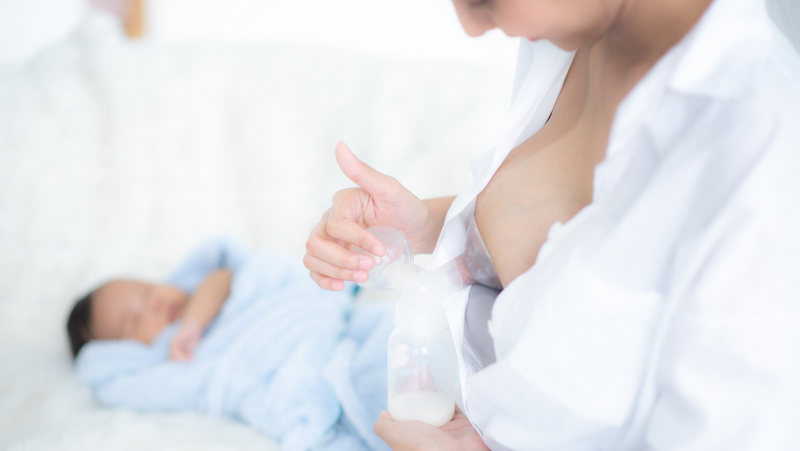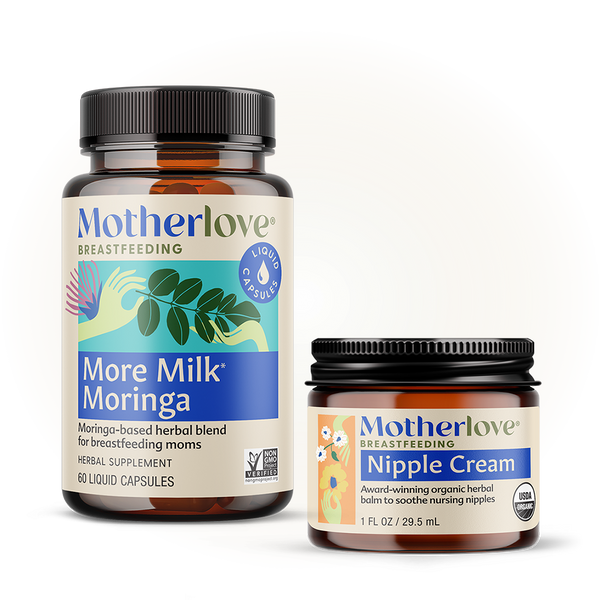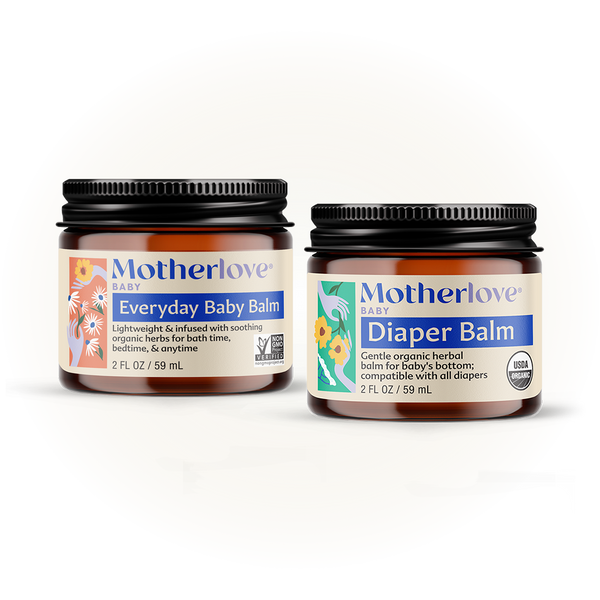Written by Wendy, IBCLC.
It’s well known that breast milk gives your baby a wonderful start in life. Breast milk is natural, healthy, mama-made, and provides the perfect nutritional balance for your little one. However, what sets breast milk apart the most from other baby milk and supplements is that it has important impacts on your baby’s immune system.
Breast milk can help ensure that your baby catches fewer illnesses, and that if they do become sick, their illness is less severe and they recover faster. Breastfed babies have healthier guts and are less likely to pick up common childhood viruses. This can be reassuring as your little one starts daycare or begins to interact with others.
WAYS THAT BREAST MILK PROTECTS AND BOOSTS BABY'S IMMUNE SYSTEM
1. Breast Milk Provides Antibodies That Help Your Baby Fight Off Viruses
When you are pregnant, you pass any antibodies you’ve developed after fighting off viruses to your baby. All babies receive that protection in the first few months after birth. But if you breastfeed your baby, that protection continues for the entire time you nurse.
To put it simply, as soon as you are exposed to a virus, your body produces antibodies to fight it. These antibodies — as well as antibodies from previous illnesses you have recovered from — are passed on to your baby so that they can fight the illness. Several different antibody types are found in breast milk, but IgA, known as secretory IgA, is the most dominant and impactful one.
2. Breast Milk Acts Like A Probiotic For Your Baby’s Gut
Breastfed babies are less likely to get sick with intestinal infections. This partly because of the antibodies in breast milk that help fight off infection, but also because breast milk provides a health flora for your baby’s gut.
Breast milk actually serves as a feeding source for the “good bacteria'' in your baby’s gut, thereby increasing their presence there. These “good bacteria” protect your baby from illness, and even decrease their risk of allergies, asthma, and other diseases down the road.
3. If Your Breastfed Baby Gets Sick, They Are Less Likely To Become Severely Ill
It’s not that breastfed babies don’t sometimes get sick—it’s just that because of the antibodies they receive in breast milk, they usually get a less severe case of a particular virus. This is especially true if you have recently gotten the virus and recovered from it. But even if your baby gets it first, they are most likely to recover from it sooner—especially because by the time they show symptoms, you have likely been exposed to it already and have begun producing antibodies for your baby.
4. Breast milk Creates A Robust Immune System For Your Baby
Besides antibodies, breast milk has many other components that provide your baby with a strong immune system, now and even after they wean. For example, your breast milk contains specific sugars and fats that help fight infections. White blood cells are also present and help keep your baby healthy. Lactoferrin and interleukin-6, -8 and -10 are proteins that regulate your baby’s immune system regulatory response.
5. Breastfed Babies Are Less Likely To Catch Common Childhood Illnesses
Breastmilk is known to protect babies from many of the garden variety illnesses that are picked up at daycares and in school environments. These include everything from ear infections, gastroenteritis, pneumonia, urinary tract infections, and even meningitis. Babies who breastfed for six months or more are also protected from certain childhood cancers, such as leukemia and lymphoma. Again, even if your baby catches a virus, whatever it is, the antibodies and other antiviral factors in breastmilk will usually mean they have a shorter and less intense course of the illness, and will be less likely to require hospitalization.
Perhaps one of the most important things to remember about breastfeeding and your baby’s immune system is that every drop counts. So if you are a mom who needs to supplement with formula, or you aren’t able to pump enough breast milk for your baby while you are at work, you shouldn’t despair. All of those wonderful antibodies and disease fighting elements are still getting into your baby, whatever amount of breast milk you are able to provide, and they are still extremely beneficial.
You should also know that these immune factors remain in breast milk for the entire time you are breastfeeding, whether it’s two months, two years, or more. And they continue to provide immune boosting benefits to your child the whole time you nurse them.
Breast milk is pretty amazing, huh? Should you be experiencing any difficulties with your journey, we encourage you to seek help from a Lactation Consultant.






